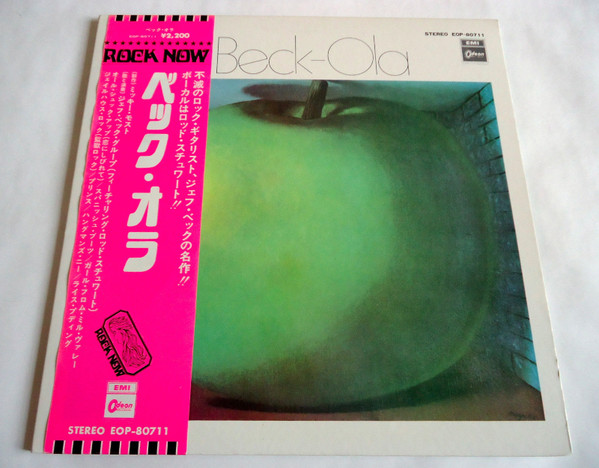Multi-national label; also appears as "Odéon".
[b]Label Code: LC 0287 / LC 00287[/b]
[b]Please note: Many Odeon issues also carry an EMI logo. EMI should not be added as a label, as it merely indicates that Odeon was part of the EMI Group.[/b]
[b]Releases on the [l37150], [l165007] and [l70384] labels which were destined for export to territories where The Gramophone Company / EMI had no rights to the use of the Dog-and-phonograph trade mark can often be found with gold-foil [l33930] or white [l33930] stickers covering the original "Dog-and-phonograph" logos . This was due to copyright issues with using that logo in those territories (Americas, Japan). In such cases, these should be entered as [l37150], [l165007] or [l70384] releases, with a Release Note stating that some copies can be found with [l33930] stickers. Additionally, many blue-label [l1866] releases manufactured by [l83491] also received Odeon stickers in order to indicate these copies were for export. As with the above, these releases are still considered to be on the [l1866] label.[/b]
[B]For [U]unofficial[/U] releases which use the Odeon-logo and/or claim to be an Odeon-release please use this label: [L=Odeon (2)].[/B]
For Peruvian Salsa and Cumbia Label Use [l=Odeon Del Peru]
Odeon started out as a label of the [l415050] in 1903. The trademark "Odeon" was already registered on October 17, 1903 and was re-registered on February 4, 1904 under no. 66576. The Odeon logotype of a dome building supported by columns did not follow until December 31, 1904 under No. 75446. Both the name and logo are inspired after a famous theatre in Paris.
In 1911, the label became owned by [l275192] who soon also owned [l=Beka], [l=Parlophone] and [l127766]. Gradually the label expanded to many countries. In 1926, ownership moved to the [l97841] which merged to form [l293204] ([b]EMI[/b]) in 1931.
In 1936, the director of the Odeon branch was forced to retire and replaced by Dr Kepler, a Nazi party member. In 1939, Odeon and [l54908] were placed under a Nazi-appointed administrator. When the Soviet army occupied Berlin in 1945, it destroyed most of the Odeon factory. After 1945, Odeon continued to be used as a label for "EMI" pressings made for West Africa, Argentina, India, Brazil, France and elsewhere. The label was written as Odéon on some French releases.
In 1965, the rights to the trademark (label) were reassigned to [l253617], subsequently further reassigned to renamed company [l63404] in 1973. On April 27, 2004 the rights to the imprint were transferred from EMI Records Ltd. to sister company EMI (IP) Ltd., an intellectual property holding company for ultimate parent [l1032063], with EMI Records Ltd. becoming the licensee. As of 2017 EMI (IP) Ltd. which is controlled (owned) by [l1330982] (formerly known as EMI Group Plc.) is still the immediate registered owner of the trademark, with the imprint being used by affiliated companies which form part of the Universal Music Group.
The Odeon building logo appeared (on the left of red labels) on French releases in 1967.

